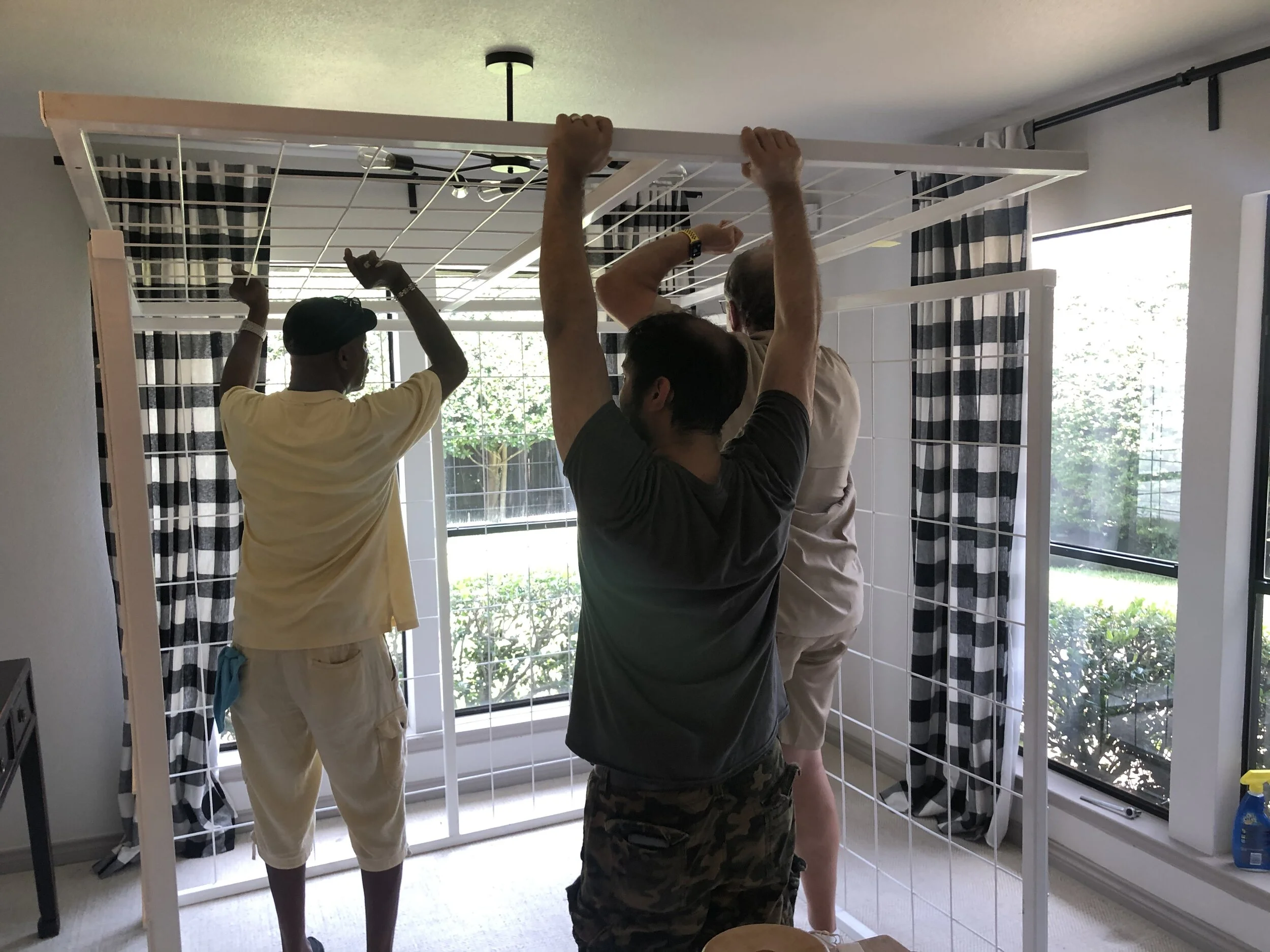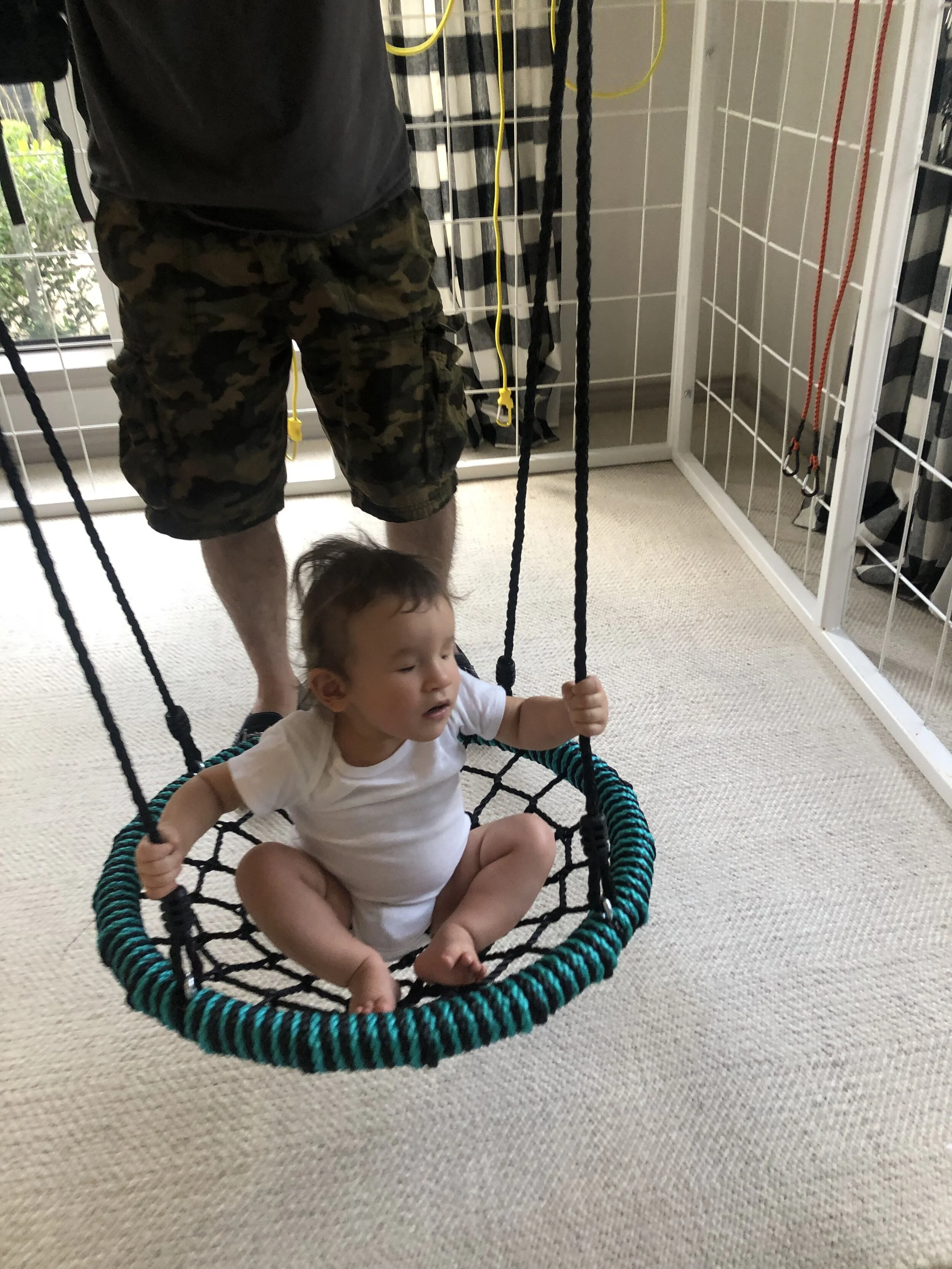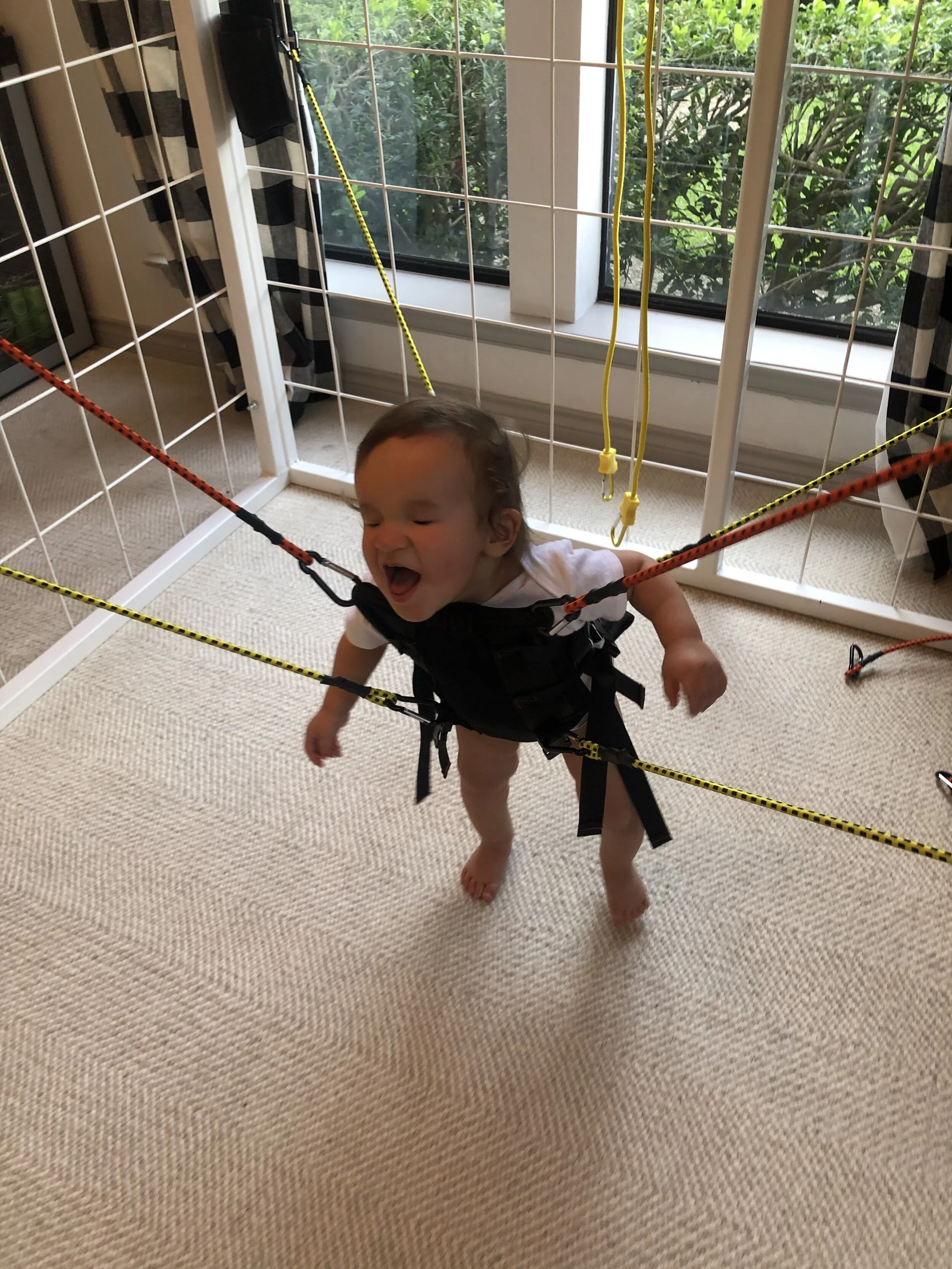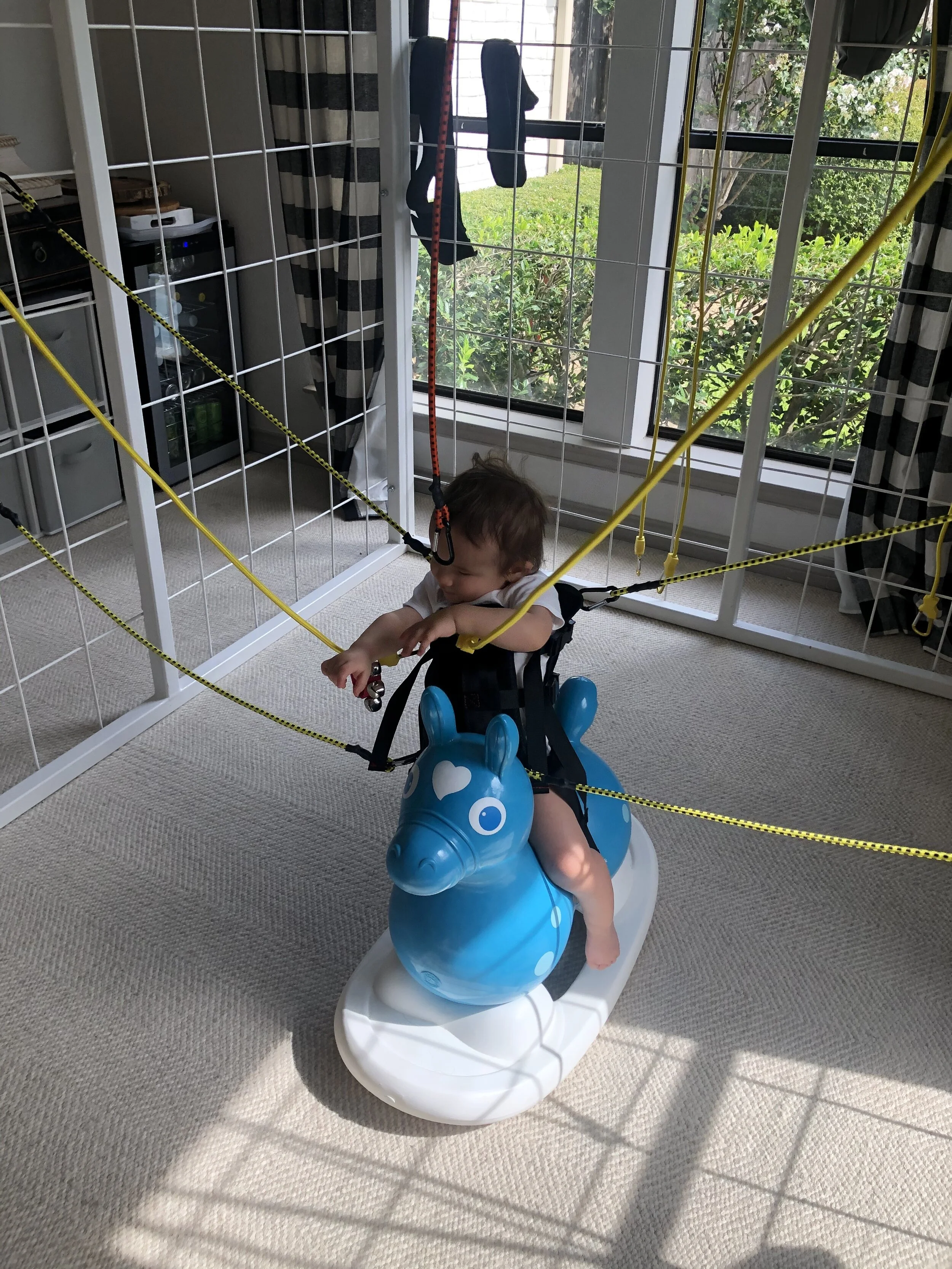The Spider TIGER Cage
About two months ago, in the midst of quarantine, I reached out to a dear friend, J Scott, that frequently has answers to random questions and is willing to entertain my outlandish musings. I asked if he might know someone that could build Santiago a Universal Exercise Unit (UEU), also known as a spider cage. They are used for kids with various medical challenges, including disorders that result in hypotonia (low muscle tone). Santiago experiences global development delays much like many blind kiddos, but his specific condition compounds those delays due to muscle tone, balance issues, and gait.
Of course, J Scott, in his thick Seymour Texas accent, says, “I gotta guy…Let me do sum checkin’...” You see, J Scott always “has a guy” because he is that kind of guy: friendly and helpful. By the day's end, “his guy” is in place with access to his metal shop, and before I know it J Scott even has someone in Fort Worth willing to powder coat the six-by-six-foot cage. He gets to work and completes the cage in just over a week’s time, which is long before I have the chance to take down my Arteriors chandelier—a sacrifice begrudgingly made in order to fit this monstrosity into our breakfast turned therapy room. (Sigh… what we do for our children!)
Here is the result: Santiago’s Spider Tiger Cage.
I am so grateful for the various people who are helping get this Tiger on his feet—literally and figuratively. The cage is going to mature Santiago’s balance by activating his vestibular system; it is going to help him enhance proper forms of crawling and walking; and it gives us some extra arms—in the form of bungee cords— with which to work with him. Added bonus: it’s a ton of fun; he loves it! Thank you so much to everyone who made this Spider Tiger Cage happen. Your generosity fills my heart.
This project also gives me pause to reflect on the past six months, wondering where they went. Quarantining has not brought out my best self. As it turns out, the self-delusion that I can do everything has reached its reckoning. Working plus six teletherapy sessions a week and online learning with Vision Impairment and O&M teachers require exigent effort I sometimes can hardly muster. I mean, do most 17-month-olds understand Zoom and telehealth? It is absurd yet necessary and worth it— most days.
In addition, we had a pretty significant battle with insurance on the very notion of teletherapy—at least it felt significant until I placed it in perspective of the global anti-racist movement. Now, very little feels significant. I am in awe of and grateful for those who have been fighting so long for social justice and working at the forefront of anti-racist endeavors. You must be tired and dismayed, wondering where the hell the rest of us have been for the past few centuries. I don’t have an answer, but I hope it changes.
I also hope to be in better touch about Santiago’s progression and our process. Some days I can take on the world; other days, getting out of bed just has to be enough. But on all days, Santiago’s happy spirit anchors us.
Post Script: J Scott has a wonderful company, Metroplex. They replaced my roof a couple of years back after we had some hail damage. He and his crew are amazing! Not only does he have a heart of gold, but he also runs a five-star company. Check them out. You won’t be disappointed. Here is their website and Facebook page.




















































